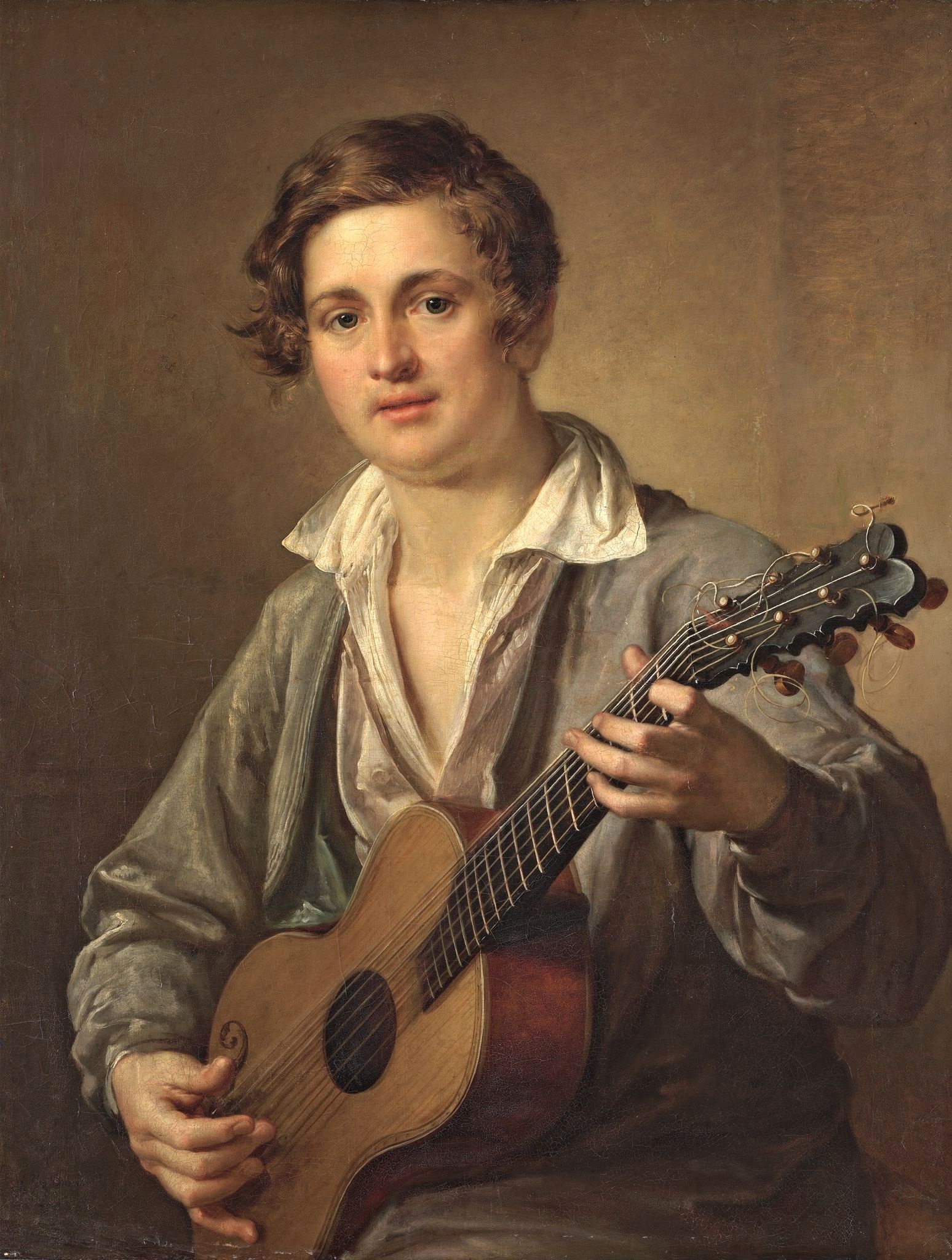|
Paulius Širvys
Paulius Širvys (6 September 1920 – 27 March 1979) was a Lithuanian poet. Biography Paulius Širvys was born in Padustėlis village (now in Zarasai District Municipality), but soon moved to Degučiai village. After his parents and brother died, Širvys lived with his relatives but later was submitted to children's home. He worked as a cowherd, graduated Salos Agriculture School in 1940. He attended infantry courses in Vilnius in 1940–41. After the Second World War began, Širvys moved to Belarus where he came under arrest as a Nazi prisoner. He managed to escape to Lithuania but again was captured and transferred to East Prussia. He joined the Red Army (the 16th Rifle Division) in 1944 and later was seriously injured. After the war, Paulius Širvys worked as an editor in several regional newspapers, in 1954–55 worked in '' Literatūra ir menas''. He graduated literature studies in the Maxim Gorky Literature Institute in 1957. After that, he worked as a reporter in magazin ... [...More Info...] [...Related Items...] OR: [Wikipedia] [Google] [Baidu] |
Alcoholism
Alcoholism is the continued drinking of alcohol despite it causing problems. Some definitions require evidence of dependence and withdrawal. Problematic use of alcohol has been mentioned in the earliest historical records. The World Health Organization (WHO) estimated there were 283 million people with alcohol use disorders worldwide . The term ''alcoholism'' was first coined in 1852, but ''alcoholism'' and ''alcoholic'' are considered stigmatizing and likely to discourage seeking treatment, so diagnostic terms such as ''alcohol use disorder'' and ''alcohol dependence'' are often used instead in a clinical context. Alcohol is addictive, and heavy long-term alcohol use results in many negative health and social consequences. It can damage all the organ systems, but especially affects the brain, heart, liver, pancreas, and immune system. Heavy alcohol usage can result in trouble sleeping, and severe cognitive issues like dementia, brain damage, or Wernicke–Kors ... [...More Info...] [...Related Items...] OR: [Wikipedia] [Google] [Baidu] |
Lithuanian Male Poets
Lithuanian may refer to: * Something of, from, or related to Lithuania, a country in the Baltic region in northern Europe ** Lithuanian language ** Lithuanians, a Baltic ethnic group, native to Lithuania and the immediate geographical region ** Lithuanian cuisine ** Lithuanian culture Other uses * Lithuanian Jews as often called "Lithuanians" (''Lita'im'' or ''Litvaks'') by other Jews, sometimes used to mean Mitnagdim * Grand Duchy of Lithuania * Polish–Lithuanian Commonwealth See also * List of Lithuanians This is a list of Lithuanians, both people of Lithuanian descent and people with the birthplace or citizenship of Lithuania. In a case when a person was born in the territory of former Grand Duchy of Lithuania and not in the territory of moder ... {{disambig Language and nationality disambiguation pages ... [...More Info...] [...Related Items...] OR: [Wikipedia] [Google] [Baidu] |
1979 Deaths
Events January * January 1 ** United Nations Secretary-General Kurt Waldheim heralds the start of the ''International Year of the Child''. Many musicians donate to the ''Music for UNICEF Concert'' fund, among them ABBA, who write the song ''Chiquitita'' to commemorate the event. ** In 1979, the United States officially severed diplomatic ties with the Republic of China (Taiwan). This decision marked a significant shift in U.S. foreign policy, turning to view the People's Republic of China as the sole legitimate representative of China. ** The United States and the People's Republic of China establish full Sino-American relations, diplomatic relations. ** Following a deal agreed during 1978, France, French carmaker Peugeot completes a takeover of American manufacturer Chrysler's Chrysler Europe, European operations, which are based in United Kingdom, Britain's former Rootes Group factories, as well as the former Simca factories in France. * January 6 – Geylang Bahru family ... [...More Info...] [...Related Items...] OR: [Wikipedia] [Google] [Baidu] |
1920 Births
Events January * January 1 ** Polish–Soviet War: The Russian Red Army increases its troops along the Polish border from 4 divisions to 20. ** Kauniainen in Finland, completely surrounded by the city of Espoo, secedes from Espoo as its own market town. * January 7 – Russian Civil War: The forces of White movement, Russian White Admiral Alexander Kolchak surrender in Krasnoyarsk; the Great Siberian Ice March ensues. * January 10 ** The Treaty of Versailles takes effect, officially ending World War I. ** The League of Nations Covenant enters into force. On January 16, the organization holds its first council meeting, in Paris. * January 11 – The Azerbaijan Democratic Republic is recognised de facto by European powers in Palace of Versailles, Versailles. * January 13 – ''The New York Times'' Robert H. Goddard#Publicity and criticism, ridicules American rocket scientist Robert H. Goddard, which it will rescind following the launch of Apollo 11 in 1969. * Janua ... [...More Info...] [...Related Items...] OR: [Wikipedia] [Google] [Baidu] |
Visuotinė Lietuvių Enciklopedija
The ''Visuotinė lietuvių enciklopedija'' or VLE () is a 25-volume universal Lithuanian-language encyclopedia published by the Science and Encyclopaedia Publishing Institute from 2001 to 2014. VLE is the first published universal encyclopedia in post-Soviet Lithuania (it replaces the former ''Lietuviškoji Tarybinė Enciklopedija'' which was published in thirteen volumes from 1976 to 1985). The last volume, XXV, was published in July 2014. An additional volume of updates, error corrections, and indexes was published in 2015. The encyclopedia's twenty-five volumes contain nearly 122,000 articles and about 25,000 illustrations. Since June 2017, VLE is published as an online encyclopedia being updated to present day. Description VLE is an encyclopedia published in Lithuanian; therefore, it focuses on Lithuania, Lithuanians and Lithuanian topics (Lithuanian personalities, organizations, language, culture, national activities). These articles make up about 20–25% of all articles ... [...More Info...] [...Related Items...] OR: [Wikipedia] [Google] [Baidu] |
Poetry Spring
Poetry (from the Greek language, Greek word ''poiesis'', "making") is a form of literature, literary art that uses aesthetics, aesthetic and often rhythmic qualities of language to evoke meaning (linguistics), meanings in addition to, or in place of, Denotation, literal or surface-level meanings. Any particular instance of poetry is called a poem and is written by a poet. Poets use a variety of techniques called poetic devices, such as assonance, alliteration, Phonaesthetics#Euphony and cacophony, euphony and cacophony, onomatopoeia, rhythm (via metre (poetry), metre), and sound symbolism, to produce musical or other artistic effects. They also frequently organize these effects into :Poetic forms, poetic structures, which may be strict or loose, conventional or invented by the poet. Poetic structures vary dramatically by language and cultural convention, but they often use Metre (poetry), rhythmic metre (patterns of syllable stress or syllable weight, syllable (mora) weight ... [...More Info...] [...Related Items...] OR: [Wikipedia] [Google] [Baidu] |
Children's Poetry
Children's poetry is poetry children's literature, written for, appropriate for children, appropriate for, or enjoyed by children. Children's poetry is one of the oldest art forms, rooted in early oral tradition, folk poetry, and nursery rhymes. Children have always enjoyed both works of poetry written for children and works of poetry intended for adults. In the West, as people's conception of childhood changed, children's poetry shifted from being a teaching tool to a form of entertainment. The first glimpse of children being shaped by poetry was noted by The Opies, renowned anthologists and literary historians. They saw that before the mid-eighteenth century there wasn't much written for children aside from encouraging phrases. Ballads of the 18th century launched the modern genre of children's poetry. Today, many poets (such as Dr. Seuss, Shel Silverstein, and Jack Prelutsky) are primarily known for their work aimed at children; many poets who primarily write for adults (suc ... [...More Info...] [...Related Items...] OR: [Wikipedia] [Google] [Baidu] |
Alliteration
Alliteration is the repetition of syllable-initial consonant sounds between nearby words, or of syllable-initial vowels if the syllables in question do not start with a consonant. It is often used as a literary device. A common example is " Peter Piper picked a peck of pickled peppers". Historical use The word ''alliteration'' comes from the Latin word ''littera'', meaning "letter of the alphabet". It was first coined in a Latin dialogue by the Italian humanist Giovanni Pontano in the 15th century. Alliteration is used in the alliterative verse of Old English poems like Beowulf, Middle English poems like Sir Gawain and the Green Knight, Old Norse works like the Poetic Edda, and in Old High German, Old Saxon, and Old Irish. It was also used as an ornament to suggest connections between ideas in classical Latin, Greek, and Sanskrit poetry. Today, alliteration is used poetically in various languages around the world, including Arabic, Irish, German, Mongolian, Hungari ... [...More Info...] [...Related Items...] OR: [Wikipedia] [Google] [Baidu] |
Parallelism (rhetoric)
Parallelism (or thought rhyme) is a rhetorical device that compounds words or phrases that have equivalent meanings so as to create a definite pattern. This structure is particularly effective when "specifying or enumerating pairs or series of like things".Corbett and Connors, 1999. p. 46 A scheme of balance, parallelism represents "one of the basic principles of grammar and rhetoric".Corbett and Connors, 1999. p. 45 Parallelism as a rhetorical device is used in many languages and cultures around the world in poetry, epics, songs, written prose and speech, from the folk level to the professional. An entire issue of the journal ''Oral Tradition'' has been devoted to articles on parallelism in languages from all over. It is very often found in Biblical poetry and in proverbs in general. Examples The following sentences and verses possess "similarity in structure" in words and phrases: In the quote above, the compounded adjectives serve as parallel elements and support the noun "la ... [...More Info...] [...Related Items...] OR: [Wikipedia] [Google] [Baidu] |
Romance (music)
The term romance (, , , , , , ) has a centuries-long history. Applied to narrative ballads in Spain, it came to be used by the 18th century for simple lyrical pieces not only for voice, but also for instruments alone. The ''Oxford Dictionary of Music'' states that "generally it implies a specially personal or tender quality". Instrumental music bearing the title "Romance" Typically, a Classical piece or movement called a "Romance" is in three, meaning three beats in the bar * Ludwig van Beethoven, Beethoven: two violin romances (''Romanzen'') for violin and orchestra, Violin Romance No. 1 (Beethoven), No. 1 G major, Op. 40; Violin Romance No. 2 (Beethoven), No. 2 in F major, Op. 50 take the form of a loose theme and variations * Johannes Brahms: ''Romanze'' in F major for piano, Six Pieces for Piano, Op. 118 (Brahms), Op. 118, No. 5 (1893) * Max Bruch: "Romance for Viola and Orchestra in F" * Arthur Butterworth: Romanza for horn and string quartet with double bass ad libitum ( ... [...More Info...] [...Related Items...] OR: [Wikipedia] [Google] [Baidu] |
Ballad
A ballad is a form of verse, often a narrative set to music. Ballads were particularly characteristic of the popular poetry and song of Great Britain and Ireland from the Late Middle Ages until the 19th century. They were widely used across Europe, and later in Australia, North Africa, North America and South America. While ballads have no prescribed structure and may vary in their number of lines and stanzas, many ballads employ quatrains with ABCB or ABAB rhyme schemes, the key being a rhymed second and fourth line. Contrary to a popular conception, it is rare if not unheard-of for a ballad to contain exactly 13 lines. Additionally, couplets rarely appear in ballads. Many ballads were written and sold as single-sheet Broadside (music), broadsides. The form was often used by poets and composers from the 18th century onwards to produce lyrical ballads. In the later 19th century, the term took on the meaning of a slow form of popular love song and is often used for any love song ... [...More Info...] [...Related Items...] OR: [Wikipedia] [Google] [Baidu] |






